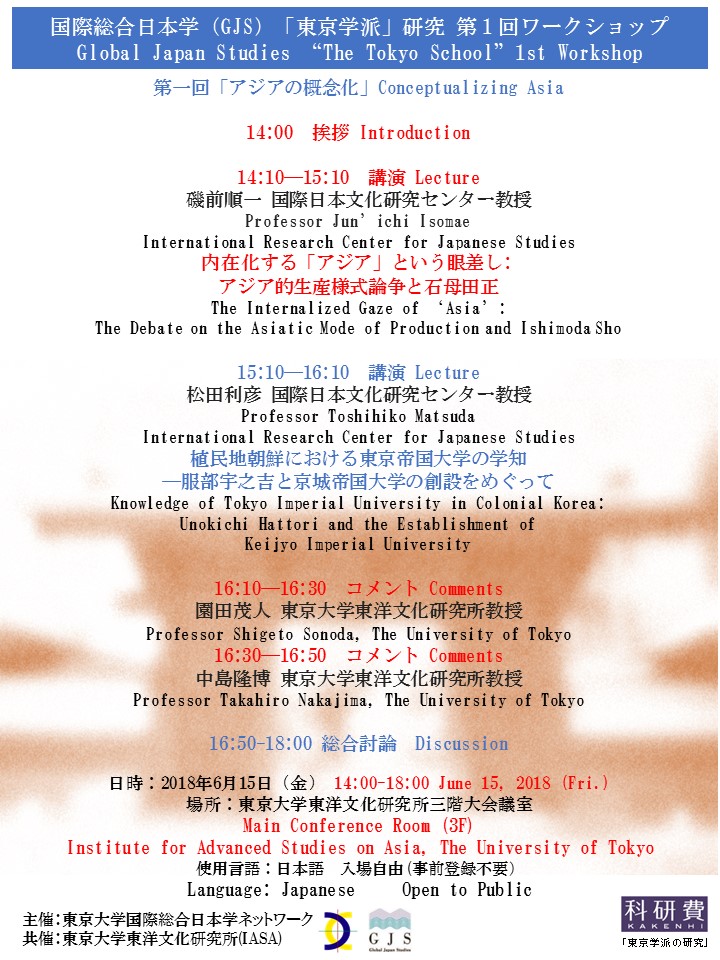Date and time: June 15, 2018 (Fri.), 14:00-18:00PM
Venue: Main Conference Room (3F), Institute for Advanced Studies on Asia, The University of Tokyo
Language: Japanese
Abstract:
The research project “Tokyo School” aims at building a new research platform, on which knowledge that has historically evolved around the University of Tokyo is investigated comprehensively and globally by particularly asking two questions: what kind of problematiques did it engage with? What kind of impact did their thought generate on Japanese society both intellectually and politically? Since its establishment in 1877, the University of Tokyo has significantly contributed to the globalization of Western knowledge, establishing itself as the intellectual hub in Asia through which knowledge has been disseminated across the region. By contrast to the Kyoto School, most famously connected to the work of Kitaro Nishida, the influence of the Tokyo School has permeated every part of Japanese society, making critical investigations of the School difficult in the past. However, the increasing globalization in the twenty-first century has highlighted the necessity of sharing modern Japanese academia’s experience internationally, and a more comprehensive investigation of the Tokyo School is in order, precisely for its substantial societal impact. By mainly focusing on humanities and social sciences, we shed light on the modern Japanese academic experience through the lens of “Tokyo School” as a heuristic concept.
For early twentieth century scholars at the University of Tokyo, how to conceptualize Japan was a pressing issue. In addressing this question, “Tokyo School” scholars aimed to constitute a Japanese and by extension Asian subjectivity through a conceptual framework that was imposed on them by Western knowledge. Objectifying Asia and Japan as part of this globalizing modern knowledge was a complex procedure, and Tokyo School scholars had to accept that acquiring agency for Asia and Japan was to be found only within the Western framework. This first workshop discusses how Asia was discursively conceptualized by focusing on two Tokyo school scholars in particular: Shō Ishimoda and Unokichi Hattori.
Organizer: The Global Japan Studies Network (GJS)
Co-organizer: Institute for Advanced Studies on Asia, the University of Tokyo
Contact: gjs[at]ioc.u-tokyo.ac.jp

